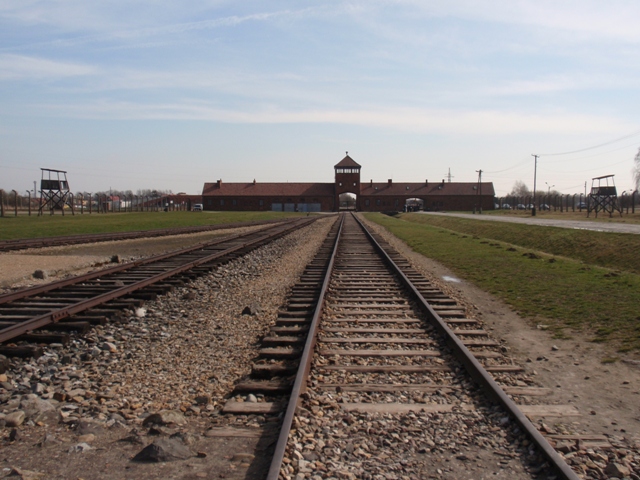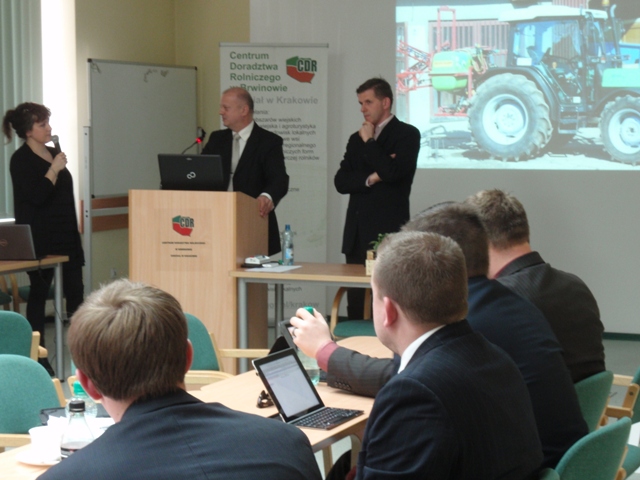International Study Seminar – Day 12
Thursday, March 20, 2014
Visit to Auschwitz + Briefing from Agricultural Advisory Center
– written by Luke McKelvie & Todd Price – Presiding Fellows
To truly understand Poland’s agricultural journey and the mindset of its farmers and ranchers, one must first understand its history. One tragic chapter of that history is the murder of six million Poles in the extermination camps run by Nazi Germany in the 1940.
The fertility and productivity of its rich farm ground made it a target for Hitler’s war machine – his ultimate goal being to eliminate the Polish people and resettle Poland as an expansion of Nazi Germany with his own German population.
The class visited Auschwitz the morning of 20 March 2014 – the last full day of our International Study Seminar. In anticipation of our visit, we used words like “hallowed ground” and “mankind’s greatest atrocity” but the sobering truth is that nothing could prepare us for being in the location where 1.5 million people were brutally murdered.

A look back at the entrance to the Auschwitz II Concentration Camp, as seen from the railway platform where thousands of Poles & Jews stepped off the cattle cars that carried them there.
Poland’s countryside bore the weight of housing every one of the extermination camps, and although it’s determined to remember what happened, it’s just as eager to move forward and create a bright future for its people. It’s this resilience and determination that propels Poland today.
Exiting the shadow of the Soviet Union in the 1990s opened enormous doors for Poland’s farmers. But there was a strong need and desire to modernize its methods and increase their knowledge. One of the vehicles facilitating that rapid change is the Agricultural Advisory Center (Centrum Doradztwa Rolniczego) located in Krakow. Similar to our university extension system, the staff empowers private and public agriculture advisors to be agents for that change on issues ranging from renewable energy and EU subsidies to agritourism and local food crop promotion.
Rafal Galiak, a coordinator at the AAC (CDR – Krakow Branch), presented the class with the case study of Waldemar Adamczyk, a successful diversified food crop farmer from the Krakow area. Adamczyk provided the class with an overview of how his operation has transitioned over the last 25 years and utilized the advisory resource available through the AAC.

Waldemar Adamczyk, potato farmer, and Rafal Galiak, of the CDR – Krakow Branch, discuss the relationship between the farmer and the Ag Advisory Centre.
Class members shared information with Galiak and Adamczyk about their own operations, quickly drawing many parallels and contrasts with American agriculture.
The class closed its International Study Seminar by acknowledging the gracious nature of the Polish people and a deep desire to continue learning about this land and its wonderful people.
Comments are closed